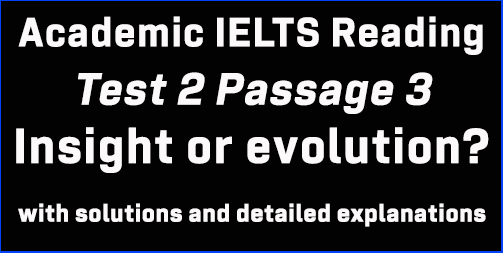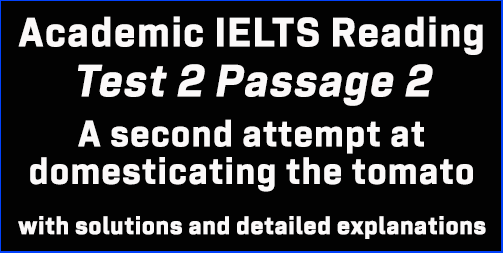IELTS vocabulary: 52 most common & important words; with meanings & example sentences
Since IELTS exam in an English Language Proficiency Test, it focuses on four language skills which are Listening, Reading, Writing and Speaking. Having in-depth knowledge in English vocabulary can dramatically improve the score as this contributes up to 25% in the total score. It plays a very important role directly in Listening and Reading section. This post focuses on 52 most common and important words which are commonly found in IELTS exam papers. I hope these words help you in your IELTS preparation and, may be, in some other exams as well.

52 most common and important words for IELTS preparation:
- Potential (n): having the necessary abilities or qualities to become successful or useful in the future.
Example sentence:
These boys have great potential in games and sports and the school recognizes it.
Potential (adj): able to develop or increase into something in the future when the essential conditions exist.
Example sentence:
This is becoming a potential problem for developing countries.
Potential (adj): possible but not yet achieved.
Example sentence: The company has taken some initiatives to find some potential clients.
- Analysis (n): detailed examination of the elements or structure of something.
Example sentence:
The organization is conducting a statistical analysis.
- Context (n): the situation within which something exists or happens, and that can help explain it.
Example sentence:
To understand this issue, we have to look at its historical context.
- Legislation (n): a law or set of laws suggested by a government and made official by a parliament.
Example sentence:
The government has recently introduced legislation to recover transparency in the power sector.
- Assess (v): to judge or decide the amount, value, quality, or importance of something.
Example sentence:
The insurance company has assessed the damages made by the recent earthquake.
- Assume (v): to accept something to be true without question or proof; to guess.
Example sentence:
I assume you have a cafeteria somewhere around.
- Research (n): a detailed study of a subject, especially in order to discover (new) information or reach a (new) understanding.
Example sentence:
The special medical team of West Hamilton Medical College has carried out ground-breaking research in this field.
- Career (n): a person’s progress or general course of action through life or through a phase of life, as in some profession or undertaking.
Example sentence:
Her career as a doctor was notable due to her contribution to the field of AIDS research.
- Accommodation (n): a room, group of rooms, building, lodging or any place in which someone may live or stay.
Example sentence:
We were living in temporary accommodation.
- Storey (n): a level of a building; floor: storeyed (adj);
Example sentence:
She lived in a seven-storeyed building for ten years.
- Quaint (adj): attractive because of being unusual and especially old-fashioned:
Example sentence:
They saw a quaint old cottage by the river.
- Sibling (n): a brother or sister.
Example sentence:
I have four siblings: three brothers and a sister.
- Rivalry (n): a situation in which people, businesses, etc. compete with each other for the same thing.
Example sentence:
There was fierce rivalry among the siblings for the property.
- Module (n): a section of a larger set of learning activities.
Example sentence:
The IELTS course has four modules.
- Habitat (n): the natural home or environment of an animal, plant, or other organisms.
Example sentence:
Animals need their own natural habitat.
- Erosion (n): the process of eroding or wearing away or being eroded by wind, water, or other natural agents.
Example sentence: Soil erosion causes floods in the Delta basin in South Asia.
- Mediterranean (n): The Mediterranean Sea or the countries bordering it;
the countries surrounding the Mediterranean in clockwise order are Spain, France, Monaco, Italy, Slovenia, Croatia, Bosnia and Herzegovina, Montenegro, Albania, Greece, Turkey, Syria, Lebanon, Israel, Egypt, Libya, Tunisia, Algeria, and Morocco; Malta and Cyprus are island countries in the sea.
Example sentence:
They went on a leisurely Mediterranean cruise.
- Exhaust emissions (noun phrase): substances that come out of an exhaust system into the atmosphere and are harmful to the environment.
Example sentence:
Automobile companies are presently under pressure to reduce the toxic levels of vehicle exhaust emissions.
- Flora and fauna (noun phrase): the plants and animals of a certain place.
Example sentence:
The Sundarbans is rich in flora and fauna.
- Mammal (n): any animal of which the female feeds her young on milk from her own body. Most mammals give birth to live young, not eggs.
Example sentence:
Humans, dogs, elephants, dolphins, and whales are mammals, but birds, fish, and crocodiles are not.
- Evolve (n): to develop gradually, or to cause something or someone to develop gradually.
Example sentence:
It is still a hypothesis that humans evolved from apes.
- Tropical (adj): from or relating to the area between the two tropics: tropic of Cancer and tropic of Capricorn or the Equator.
Example sentence:
The Amazon river basin contains the world’s largest tropical rainforest. / In tropical climates, there are often only two seasons: a wet season and a dry season.
- Reptile (n): a vertebrate animal of a class that includes snakes, lizards, crocodiles, turtles, and tortoises.
Example sentence:
This looks like an African reptile.
- Endemic (adj): (of a plant or animal) native and restricted to a certain place.
Example sentence:
A marsupial is endemic to north-eastern Australia.
- Biodiversity (n): the variety of plant and animal life in the world or in a particular habitat, a high level of which is usually considered to be important and desirable.
Example sentence:
A brand-new survey is needed to protect the biodiversity in this region.
- Drastically (adv): severely and suddenly.
Example sentence:
Our budget has been drastically reduced.
- Gruesome (adj): extremely unpleasant and shocking, and usually dealing with death or injury.
Example sentence:
She gave a gruesome description of the murder.
- Collapse (v): to fall down suddenly because of pressure or having no strength or support.
Example sentence:
Hundreds of buildings collapsed in the recent earthquake in Nepal.
- Erratically (adv): moving or behaving in a way that is not regular, certain, or expected.
Example sentence:
I was scared because he drove erratically.
- Plummet (v): to fall very quickly and suddenly.
Example sentence:
The mortality rate plummeted in the 1990s.
- Indispensable (adj): extremely important.
Example sentence:
These documents are indispensable parts of my survey.
- Itinerary (n): a detailed plan or route of a journey or trip.
Example sentence:
The tour operator generally arranges transport and plans your itinerary.
- Conflict (n): an active disagreement between people with opposing opinions or principles.
Example sentence:
We know of a lot of conflict between Jenny and her father about her boyfriend.
- Gadget (n): a small device, appliance, or machine with a particular purpose.
Example sentence:
I like all kinds of office gadgets from Samsung and Apple.
- Suburb (n): an area on the edge of a large town or city where people who work in the town or city often live.
Example sentence:
She lives in the eastern suburb of this city.
- Steady (adj): happening in a smooth, gradual, and regular way, not suddenly or unexpectedly.
Example sentence:
A steady increase has been observed in the oil price since the election result.
- Muggy (adj): unpleasantly warm and humid weather as the air contains a lot of moisture.
Example sentence:
It was a muggy summer day and Jack was feeling very uncomfortable.
- Arid (adj): very dry and without enough rain for plants.
Example sentence:
Sahara is probably the aridest place on the earth.
- Species (n): a set of animals or plants in which the members have similar characteristics to each other and can breed with each other.
Example sentence:
Snapping turtles are an endangered species, so you cannot hunt them.
- Drought (n): a long period when there is little or no rain.
Example sentence:
A recent severe drought has ruined the crops in this region.
- Cuisine (n): a style of cooking.
Example sentence:
Master Chef Gordon Ramsay likes Bangladeshi cuisine.
42: Discipline (n): training that makes people more willing to obey or more able to control themselves, often in the form of rules, and punishments if these are broken, or the behaviour produced by this training.
Example sentence:
Students are taught discipline in this institute and they become serious about every move they make.
Discipline (n): a particular area of study, especially a subject studied at a college or university.
Example sentence:
Sociology is comparatively a newer discipline.
- Identical (adj): exactly the same, or very similar.
Example sentence:
The documents look identical.
- Episode (n): a single event or group of related events.
Example sentence:
This was just another boring episode of marriage problems.
- Outskirts (n): the areas that form the edge of a town or city.
Example sentence:
Her house is on the outskirts of the town.
- Ingredient (n): one of the parts in a mixture / a particular dish.
Example sentence:
Basil is used as a key ingredient in this sauce.
- Haggle (v): to attempt to decide on a price or conditions that are acceptable to the person selling the goods and the person buying them, usually by arguing.
Example sentence:
In this local market, it is a tradition to haggle over the price of fish.
- Obvious (adj): clear and easy to see.
Example sentence:
These are the obvious lines that the poet is going to add to his speech.
- Blog (n): a regular record of your thoughts, opinions, or experiences that you put on the internet for other people to read.
Example sentence:
The blog named ieltsdeal.com shares important tips, solutions, and new ideas about IELTS preparation.
- Passionate (adj): having very strong feelings or emotions.
Example sentence:
The students are passionate about grammar.
- Hypothesis (n): an idea or explanation for something that is based on known facts but has not yet been proved.
Example sentence:
This is just another hypothesis about global warming.
- Predictable (adj): acting or happening in a way that is expected.
Example sentence:
She’s so predictable that her friends know about every move she makes.




Hey hi I have doubt about ielts acedamic writing task 1 how to use have been and has been what is difference between them.can u let me know
Hey hi I have doubt about ielts acedamic writing task 1 how to use have been and has been what is difference between them.can u let me know
Hi, what are some of the common mistakes during lELTS